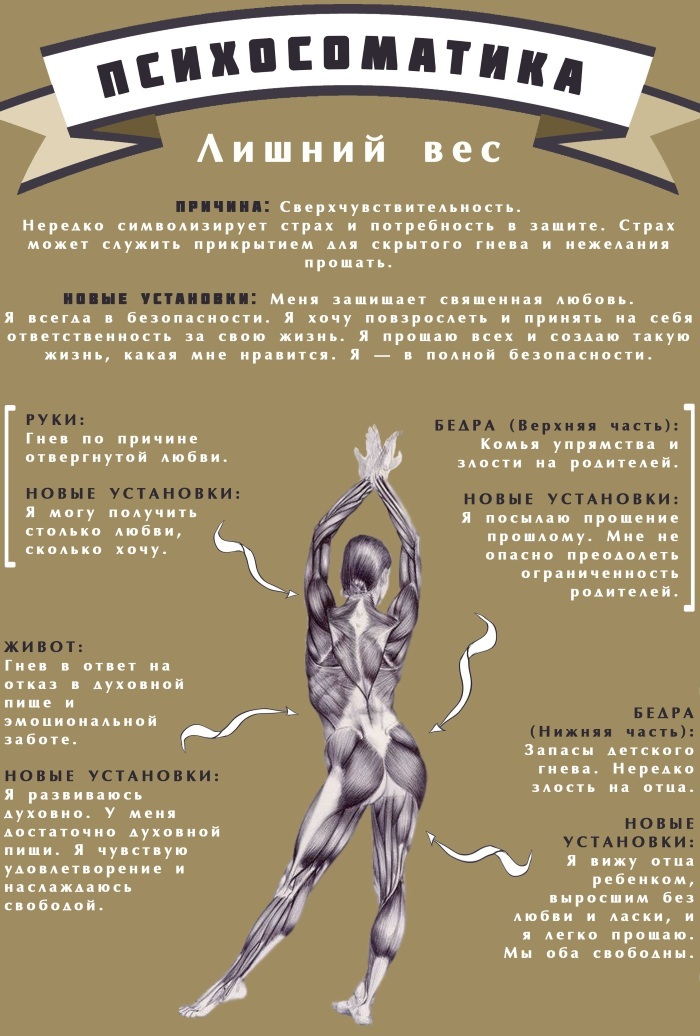Mental retardation, or oligophrenia is a pathological condition in which there is a violation of mental human development, violation of all nervous processes, as well as the lack of the ability to adapt to the usual way life.
The disease passes from one stage to another over a rather long period, does not lend itself to complete cure and brings a lot of trouble to the people around the patient.
Record content:
- 1 Views
- 2 Stages and degrees
- 3 Symptoms
- 4 Reasons for the appearance
- 5 Diagnostics
- 6 When to see a doctor
- 7 Prophylaxis
-
8 Treatment methods
- 8.1 Medications
- 8.2 Traditional methods
- 8.3 Other methods
- 9 Possible complications
- 10 Mental retardation video
Views
Today there is a classification that divides pathology depending on its course, as well as other criteria. The most common classification involves the division of the disease into mild, moderate and severe. The first is observed in the overwhelming majority of patients with a similar diagnosis, while there are no acute and pronounced manifestations of pathology.
The average form is considered more dangerous, its symptoms are difficult to stop, and complications develop more often. The severe form is considered the most dangerous, but the least common. At the same time, it is almost impossible to eliminate the symptoms and slightly normalize the patient's condition.
In addition, the disease is distinguished by a complicated and uncomplicated course of a pathological condition. The former is considered dangerous and can be fatal. Depending on the severity of certain symptoms, 3 forms of pathology are distinguished.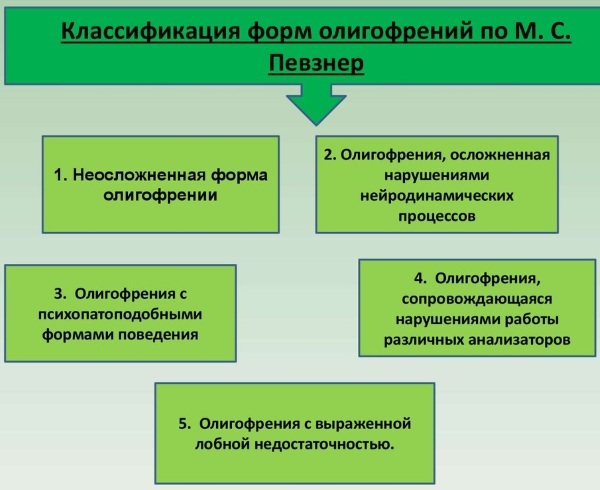
| Pathology form | Features of the course |
| Moronity | This form is registered in more than 70% of all patients with mental retardation. At the same time, patients retain the ability to learn, which is slower than that of healthy people. However, with the correct selection of the program and constant supervision, such patients can become members of society and even perform some simple work. |
| Imbecility | With the development of this form of pathology, the ability to learn is minimal, patients have certain skills, can take care of themselves on their own, but require constant monitoring |
| Idiocy | The most severe form of mental retardation, in which the patient is unable to take care of himself and perform the simplest manipulations |
Any form of the disease is considered dangerous, but in a severe course of the condition, violation of the rules of care can lead to the death of the patient.
Depending on the clinical manifestations and the severity of certain symptoms, doctors distinguish 4 types of pathology. The atonic variety is characterized by severe impairment of concentration. It is extremely difficult to attract a patient with this form of pathology, and when trying to teach him something, specialists are faced with an almost complete inability to memorize.
Asthenic retardation is usually diagnosed at the age of 7 years. In this case, the patient is usually irritable, touchy and whiny. Additionally, there is a sharp change in mood and other manifestations. However, this type of disease belongs to mild forms.
The stenic form of mental retardation is characterized by a favorable course, in which human the patient's qualities are not affected, but he tends to be impulsive, reckless and sometimes dangerous actions. However, this form can also occur in a balanced and unbalanced form. The second is considered more dangerous for the patient himself and others.
The dysphoric form is accompanied by mental disorders and emotional disturbances, it is considered a severe variety.
In addition, congenital and acquired forms of pathology are distinguished. The first appears immediately after birth or during the first year of life, the second - after a few years or in adulthood.
Stages and degrees
In most cases, mental retardation in patients is found in early childhood or adolescence. It gradually moves from one stage to another, regardless of the type of pathological condition.
The initial stage of the pathological condition is accompanied by minor changes in the nervous system. In this case, personality disorders may be absent, and the person is amenable to learning. Such patients independently perform all household manipulations, and can also master the profession. With the right care, patients can become full members of society.
The progressive stage is considered more dangerous. Patients develop motor and behavioral disorders, and the disappearance of previously acquired skills is noted.
Gradually, all symptoms worsen, the patient requires constant monitoring. Usually, at this stage, the patient is admitted to a specialized medical institution, where he receives medical treatment.
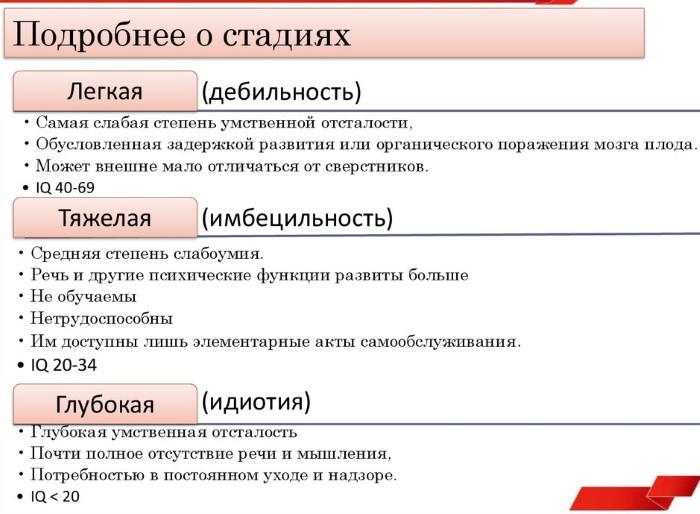
The neglected form is accompanied by severe disorders of the nervous and musculoskeletal system. Such patients are completely helpless, cannot consume food or even water on their own, therefore, without supervision, they die within several days.
It should be noted that for any type and form of pathology, the disease proceeds in several stages, but the transition from one degree to another is carried out at different speeds, which depends on individual characteristics organism.
Symptoms
Mental retardation (stages and their features can proceed in different ways in patients) is characterized by the appearance of many symptoms from organs and systems.
It is worth noting that patients with such a diagnosis may differ from healthy people in appearance, but only in a severe course of the disease. An involuntary protrusion of the tongue, a constantly open mouth, as well as an absent-minded "empty" look, highlight a mentally retarded child or adult. However, at the initial stage and with a mild course of pathology, there are no external signs.
The first manifestations are noted in most cases in early childhood or adolescence. The child lags behind in development from peers, does not assimilate even simple information and cannot concentrate his attention on one lesson or subject for a long time. Even in the case when a person assimilates any information, it does not stay in the memory for a long time.
In addition, such children from an early age cannot communicate normally with their peers, often remain alone and do not try to establish contact. Educators, teachers and parents in this case do not consider the manifestation as a sign of a mild form of debility, therefore they do not go to the doctor.
As the condition progresses, speech impairments appear, as well as visual and hearing impairments. The patient's behavior differs from the behavior of other people, he cannot control himself and does not learn elementary rules that must be adhered to.
In many children, from an early age, there are disorders of the musculoskeletal system, as well as emotional disturbances, and poor sleep.
It should be noted that when problems with the perception of information appear, the patient does not assimilate it in written, speech or visual form.. That is, images, sounds and any texts are not perceived, and during perception they are not retained in memory.
In addition, in patients with mental retardation, there is an inability to generalize certain objects, events, to see the connection between them. When trying to do this, the patient is embarrassed, looks confused, but more often gets angry, because he is not able to start his mental activity.
Another manifestation of mental retardation in children and adults is the complete absence of abstract thinking. This means that such patients do not have a sense of humor and understand everything that someone says literally.
In patients with severe forms of oligophrenia, there is an almost complete lack of consistency in thinking. This manifests itself in the inability to perform any action consisting of several steps.
Such patients constantly stop, cannot understand the meaning of their manipulations and mentally link several steps. In a mild form of pathology, such a violation is less pronounced, which allows patients to take care of themselves without outside help.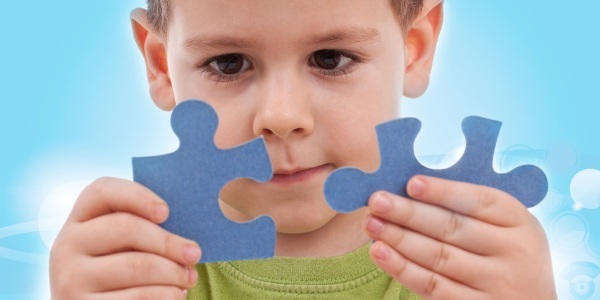
Mental retardation, the stages of which smoothly pass one into another, is almost always accompanied by a violation on the part of critical thinking, as well as a slowdown in thinking.
The patient is looking for an answer to simple questions for a long time, and also cannot adequately assess his own behavior. In children, this manifests itself in excessive activity in any place and an inability to control their behavior even at the request of an adult.
Additionally, patients show speech disorders in the form of dumbness, stuttering, and slurred words. It is not so easy to understand the meaning of what the patient said, even for those who are constantly with him. Quite often, patients with oligophrenia suffer from strabismus and even blindness. This is due to disorders of the nerve centers responsible for the organs of vision.
Organic damage to the hearing system is a common cause of hearing impairment. In this case, the symptom manifests itself with a mild course of pathology or when a severe form is diagnosed. Among the external manifestations, a violation of the coordination of movements can be distinguished, in which the patient cannot play sports, even simple walking is difficult, the patient is constantly injured.
On the part of emotional development, disorders are also observed. Patients with mental retardation show little emotion and are difficult to surprise or interest. Some children or adults very quickly experience emotional upheavals associated, for example, with the death of loved ones or other troubles.
However, in some patients, the emotional manifestation is overly pronounced. They fall into deep depression with minor problems, cry a lot, and it is difficult to calm them down.
It should be noted that in patients with a mild form of pathology, outbursts of sudden anger and rage are rarely observed. However, with a severe course of the disease, such cases are quite common. Patients are aggressive, difficult to control, but their actions are rarely aimed at causing physical harm to others.
As a rule, they speak loudly, shout and gesticulate, often cry to alienate a potential "offender." In different patients, the manifestations of the disease may differ, depending on the form of pathology, stage and characteristics of the organism.
Reasons for the appearance
The disease develops as a result of various pathological factors. At the same time, its shape or variety does not matter.
However, experts identify the reasons that can provoke the congenital and acquired form of the disease:
- Birth trauma or fetal hypoxia at birth, during intrauterine development.
- Infectious pathologies of the mother during pregnancy.
- Any irregularities in the fertilization of the egg.
- The age of the parents. Experts have proven that sex cells change with age, and the likelihood of their mutations increases.
- Genetic predisposition.
- Diabetes mellitus type 1.
- Phenylketonuria.

- Exposure to the mother's body of radiation or toxins.
- Bad habits.
- Prematurity, in which oligophrenia occurs 20% more often.
- Deficiency of vitamins and minerals during intrauterine development.
- Diseases of the central nervous system in the first years of life.
- Hereditary pathologies, in which there are disorders of the central nervous system: Down syndrome, Angelman, Rett, Williams, Cruson syndrome.
- Bacterial, microbial, parasitic and viral infections of the child or mother.
- Hemolytic disease.
- Epilepsy manifested in early childhood.
- Hydrocephalus.
In addition, microcephaly can be the cause of oligophrenia. In each case, the disease manifests itself in different ways, but some common signs help differentiate it from other pathologies.
Diagnostics
Mental retardation (stages can move from another to another very slowly with a favorable course of the condition) quite easily diagnosed using several methods:
- Examination of the patient and interviewing his parents is carried out free of charge in every clinic. During the procedure, the specialist clarifies the presence of people with similar deviations in the family, as well as the time of onset of manifestations, the severity of the pathology and possible complications. The doctor assesses the patient's speech, coordination of movements, hand motor skills, as well as the ability to think logically and consistently.
- General examination of blood and urine gives an idea of the state of the patient's body. It is carried out in a private and public clinic. In the first, the price is about 300 rubles. The diagnostic result helps to determine the further direction of therapy.
- Electroencephalography helps to assess the work of certain brain centers, which helps to detect the degree of mental retardation. The manipulation is carried out in specialized offices, its cost is approximately 1000 rubles. During diagnostics, special attachments are attached to the patient's head, information from them is sent to the monitor, and the doctor assesses the mental activity.
-
Magnetic resonance imaging it is considered an additional method, since it does not help to confirm the presence of oligophrenia in the patient, but it can show the presumptive cause of the retardation. It is carried out in clinics with the appropriate equipment, the price is approximately 1500-2500 rubles.
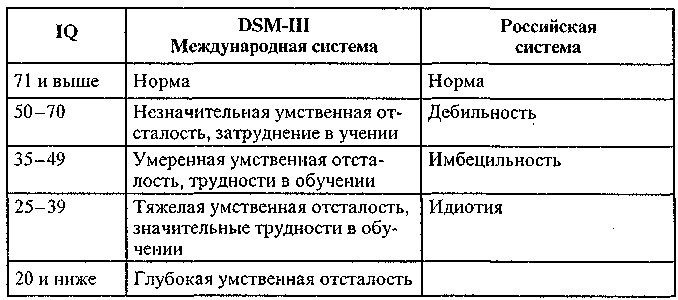
Electroencephalography is considered the most effective method, but comprehensive diagnostics additionally includes several tests with which the doctor determines the degree of neglect states in points.
When to see a doctor
If even minor, unexpressed manifestations of oligophrenia appear, as well as the diagnosis of a mild form of pathology, you should immediately consult a doctor. These disorders are treated by a psychiatrist. However, in addition, you may need to consult a neurologist, endocrinologist, cardiologist, therapist.
Prophylaxis
The disease is rather difficult to prevent, especially in the case of a hereditary predisposition to its development. However, it is recommended to adhere to the principles of a healthy lifestyle when carrying a child. It is important to eliminate bad habits and balance the diet. It should include healthy foods and drinks in sufficient quantities.
In addition, it is recommended to undergo a screening examination in the 1st trimester of pregnancy, in which the likelihood of deviations in the development of the child is revealed. If a mother carries an infectious, viral, bacterial disease while carrying a child, it is important to consult a doctor and not self-medicate.
It is difficult to completely eliminate the risk of oligophrenia in a small child, but it is important to create favorable conditions for life for him, as well as devote more time to his development. That will be a good prevention of various disorders.
Treatment methods
Mental retardation (stages allow assessing the degree of neglect of the condition) is rather difficult to treat, but doctors in each case draw up an individual scheme.
Medications
It is impossible to completely cure the pathology, but some drugs help to improve the nutrition of brain tissues, as well as eliminate unpleasant emotional manifestations.
The most effective remedies:
-
Piracetam - a nootropic medication that improves blood circulation and nutrition in the tissues of the brain, which helps to stimulate the mental activity and memory of the patient. The tablets are effective. Appointed in courses of 3-6 weeks. They should be taken 1 piece 3 times a day. The price of the product is from 120 rubles.

- Phezam - another remedy in the form of capsules to stimulate cerebral circulation and tissue nutrition. It is highly effective, helps to improve mental activity and prevent the rapid progression of the disease. Capsules are taken 2 pieces 2 times a day for 2-4 weeks, depending on the severity of symptoms. The price of the product is from 200 rubles.
- Glycine - a preparation in the form of tablets based on an essential amino acid for the body. It is considered very effective because it inhibits the processes in the brain responsible for excessive emotional arousal and insomnia. At the same time, the patient's sleep and behavior are normalized. It is necessary to dissolve the tablets 3 times a day, 1 piece, the course lasts up to 4 weeks. The price of tablets is from 40 rubles.
- Vitamin B1, B6, B12 - these vitamins improve the passage of nerve impulses through tissues and cells, therefore they are always prescribed for nervous and mental disorders. The funds are very effective, they are injected intramuscularly at 1 ml per day for 10-14 days. If necessary, repeat the course after 3 months. The price of funds is from 30-40 rubles.
- Sonapax - a hypnotic with high efficiency, which additionally prevents attacks of aggression in patients with severe pathology. Take 1 tablet at bedtime for 2 weeks. Price - from 250 rubles.
- Phenazepam - an effective medicine that is prescribed to prevent aggressiveness, to eliminate anxiety, tearfulness and other manifestations. Tablets are taken 1 piece 2 times a day, the course lasts from 2 to 4 weeks. The price of the medicine is from 150 rubles.
-
Amitriptyline Is a very strong and effective antidepressant prescribed to improve sleep and inhibit certain centers of the brain. It is prescribed for severe pathology with a constant manifestation of aggression. Before going to bed, the patient takes 1 tablet. The treatment is carried out for 1-4 weeks. Price - from 50 rubles.

Such remedies help to improve the patient's condition. The dosage and duration of the course is determined individually.
Traditional methods
Folk remedies do not help treat the disease, but some of them have a sedative effect, which depresses the patient and reduces the frequency of attacks.
A decoction based on mint leaves can be obtained from 10 g of dry raw materials and 1 liter of water. Cook the composition for at least 5 minutes, leave to infuse for 1 hour, filter. The finished product should be given to the patient in 100 ml in the morning and in the evening for 10 days.
Lemon balm and linden infusion is considered a light but effective sleeping pill. You can get it from 500 ml of boiling water, 5 g of linden and 5 liters of fresh lemon balm. After insisting for 2 hours, the product is ready for use. It should be taken at bedtime, 150 ml. Repeat the procedure for 10-14 days in a row.
It is worth noting that such funds are allowed to be taken only after the approval of a doctor. They do not affect the course of the disease.
Other methods
In childhood, specialists often use the method of finger gymnastics, which develops the child's thinking and helps to stimulate the development of certain centers in the brain. The essence of gymnastics is to perform small manipulations with your own fingers in a strict sequence indicated by a specialist.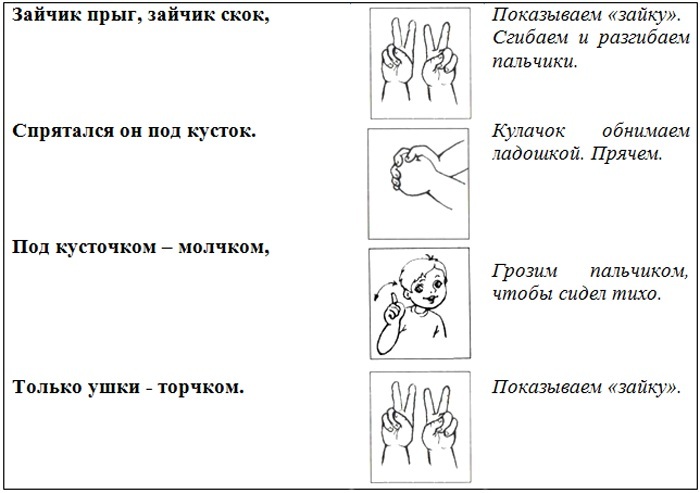
Children squeeze and unclench their fingers, count them, and also shift small objects, collect them. This allows you to stimulate the speech apparatus. The method is suitable for children with mild mental retardation.
Massaging the neck and head area is considered a complementary method to improve nutrition and blood circulation in the brain tissues. In this case, the doctor performs all movements with caution, and the course consists of 15-25 sessions for 25 minutes. They are carried out daily or once every 2 days.
Additionally, it is useful for children with mild retardation to play music. It develops intellectual ability as well as abstract thinking. With a severe course of pathology, there is a lack of effect from such exercises.
Possible complications
It is completely impossible to cure the disease.
However, if the symptoms are ignored, it progresses rather quickly, which leads to complications:
- Frequent bouts of aggression.
- Depressive state.
- Movement disorders.
- Complete loss of hearing and vision.
- Injuries as a result of impaired coordination of movements.
The most serious complication is considered a lethal outcome, which is more often observed in severe disease and improper patient care.
Mental retardation is considered a rather dangerous disease. The stages of pathology can slowly or rapidly move one into another, which aggravates the patient's condition. The lack of corrective therapy leads to complications, and if all recommendations are followed, the course of the disease can be significantly slowed down.
Mental retardation video
A doctor about mental retardation:



